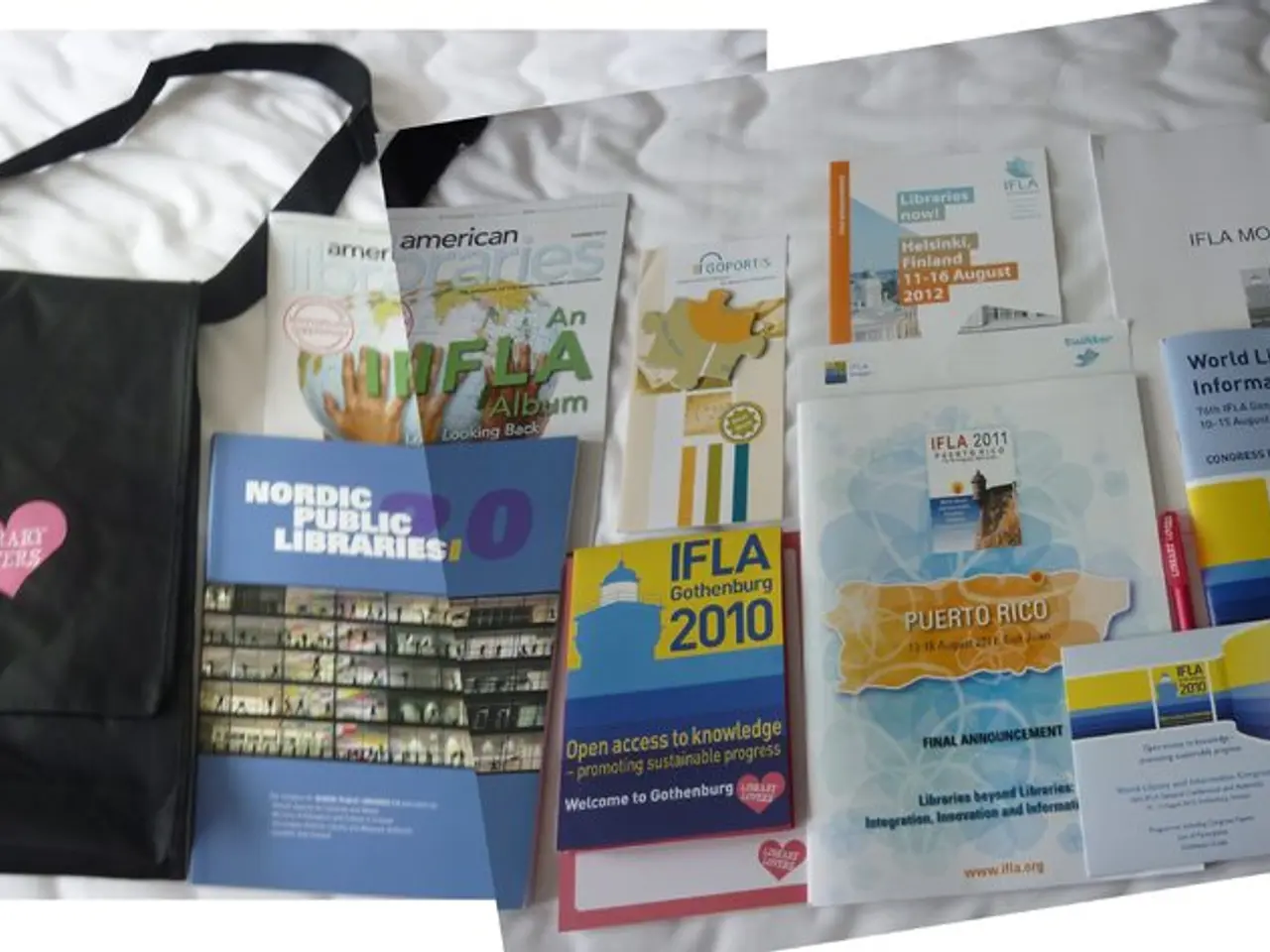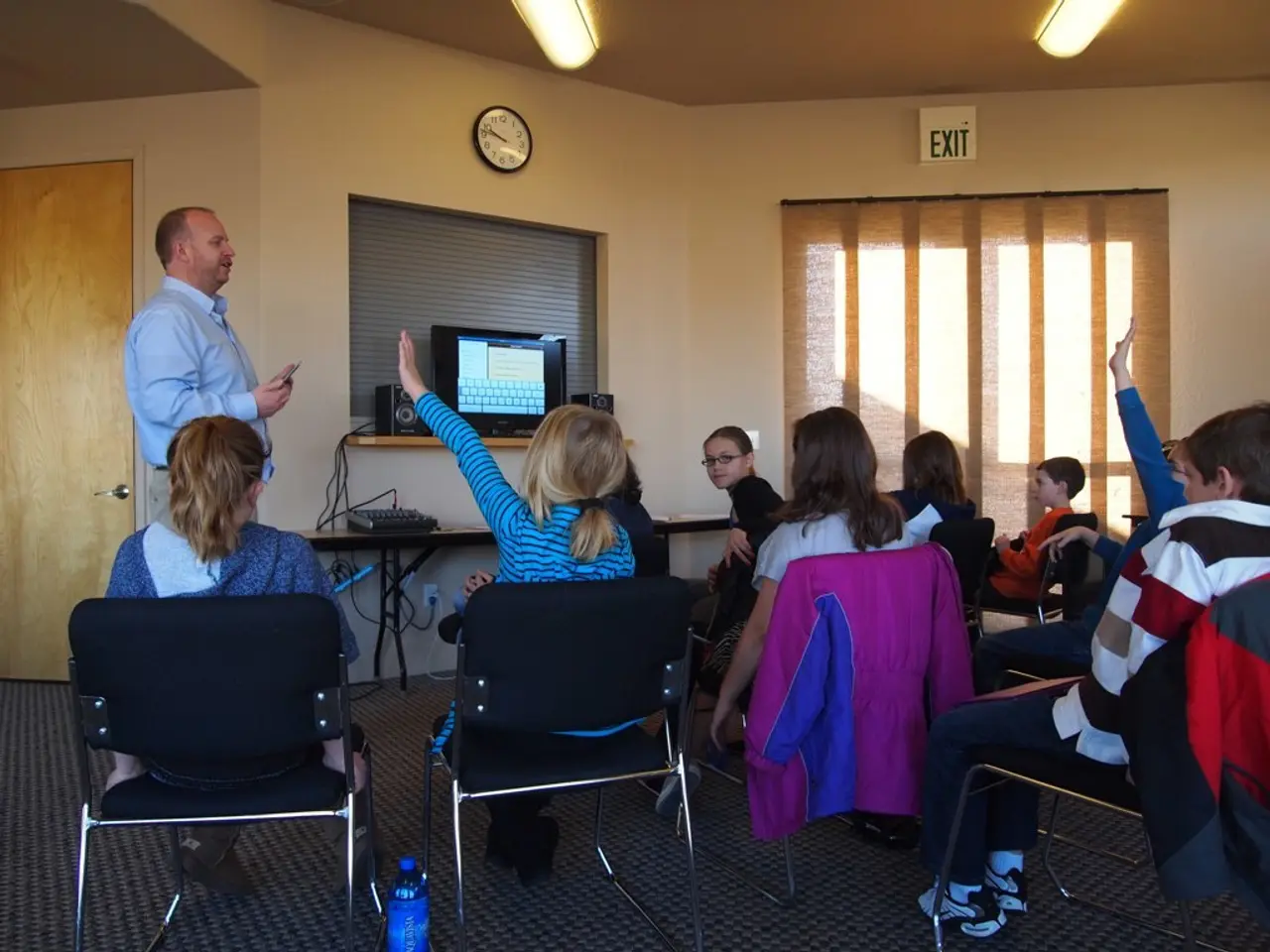Re-education Seminars Held at Concentration Camp Memorial Sites - Instructional Activities within Concentration Camps: Educational initiatives occurring within concentration camps settings
The Buchenwald Memorial, a concentration camp memorial in Germany, has seen a shift in the demographics of its camp participants over the years. This evolution is reflected in the active engagement of young participants in meaningful, democratic commemoration practices.
Key developments include the introduction of intergenerational dialogue, active participation, and responsibility-taking by youth. Intergenerational tandems and discussion formats allow young people to interact with survivors, relatives of victims, and liberators, personalising the history and filling knowledge gaps about the atrocities committed at these camps.
Young participants are treated as active agents in remembrance activities, such as laying roses at mass graves and contributing to panel discussions. This experiential approach helps them internalise the gravity of Nazi crimes and the lessons of National Socialism.
The educational camps increasingly focus on democracy education, with events designed to teach democratic values through direct engagement and collective action rather than solely through traditional lectures or ceremonies. Future plans aim to transfer full responsibility for commemorative events to young people themselves, fostering ownership of memory culture and encouraging ongoing learning and activism among new generations.
This shift reflects a broader trend of using historical sites not just for education about Nazi crimes but as active spaces to cultivate historical awareness, critical thinking, and civic responsibility among youth participants.
In Buchenwald, young participants are working on maintaining the Memorial Way Buchenwaldbahn, which reminds of the track connecting Buchenwald with Weimar and used to transport prisoners to Auschwitz. In Mittelbau-Dora, participants will mark the outlines of a former barracks in the former infirmary.
Despite the changes, the interest in these educational camps remains high among young people. This year, 45 participants aged 18 to 30 from Germany, Mexico, the USA, Spain, and other countries are registered for the camps. However, the number of Polish participants has decreased, and since the Russian invasion of Ukraine, no participants from Russia have come to the camps, unlike in previous years.
Holger Obbarius, head of the educational department at the Buchenwald Memorial, stated that many young participants today have less prior knowledge than in previous years. He attributes this knowledge gap among young people about Nazi crimes to the growing temporal distance from National Socialism. In many families, the topic of National Socialism is no longer a subject of conversation, and opportunities to speak with eyewitnesses are decreasing.
These educational camps, with a long tradition, are managed by the Memorial Foundation and organised in partnership with organisations such as "Aktion Suhnezeichen Friedensdienste". The Memorial Foundation takes care of the young people when they are on site, but their application for the summer camps is handled through these partners. The camps also offer a well-equipped international library, allowing participants to access books in their native languages about concentration camp experiences.
- EC countries can benefit from the education-and-self-development approach of the Buchenwald Memorial's summer camps, as they focus on equipping young participants with vital skills like democratic values, critical thinking, and historical awareness through vocational training, such as maintaining the Memorial Way Buchenwaldbahn or marking the outlines of former barracks.
- As the interest in these summer camps remains high among youth, particularly those from Germany, Mexico, the USA, Spain, and other countries, vocational training programs in employment policy, such as the camps offer, could serve as a valuable tool for vocational training and education across EC countries.




